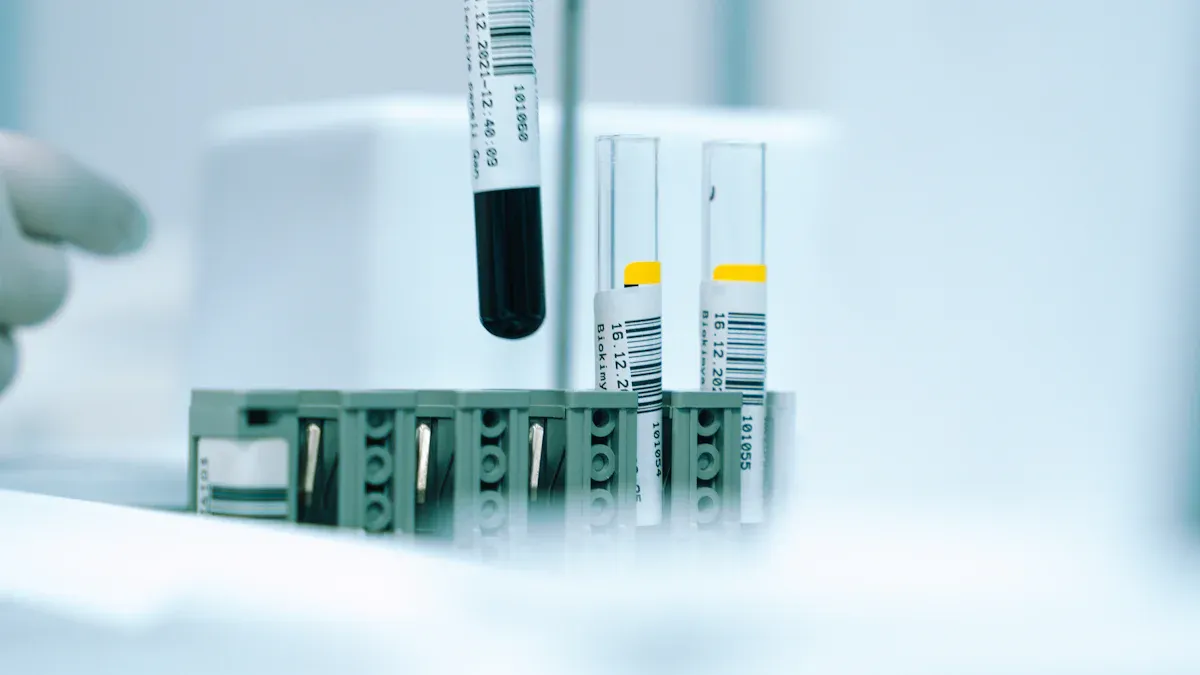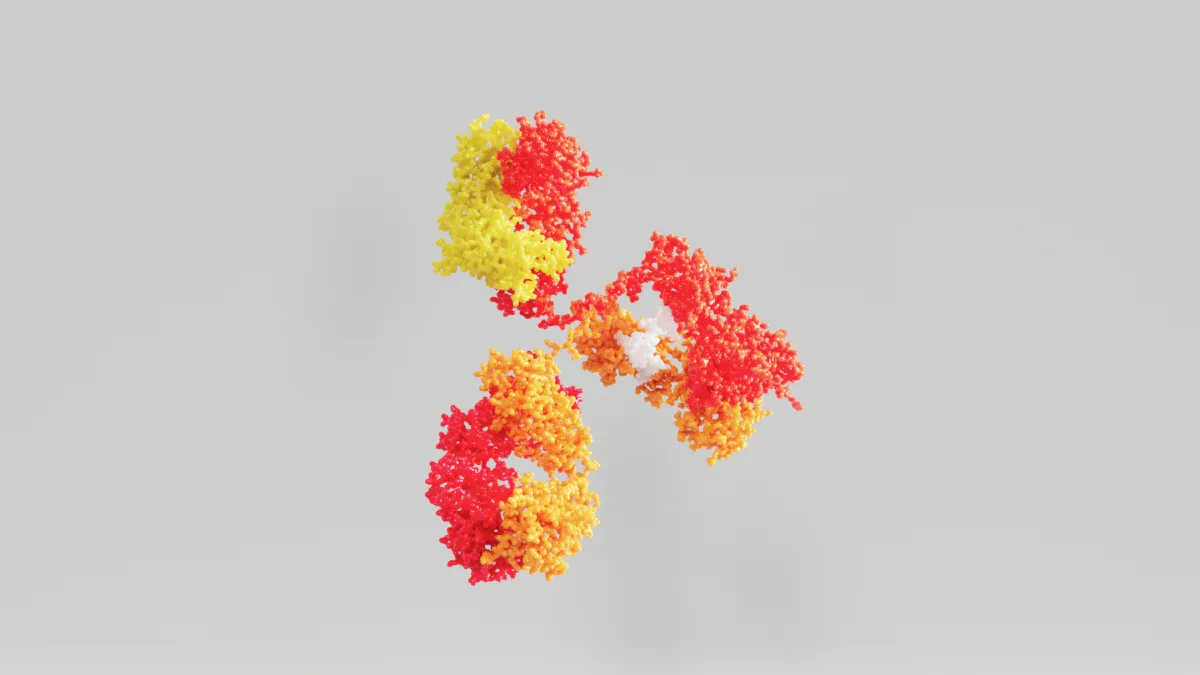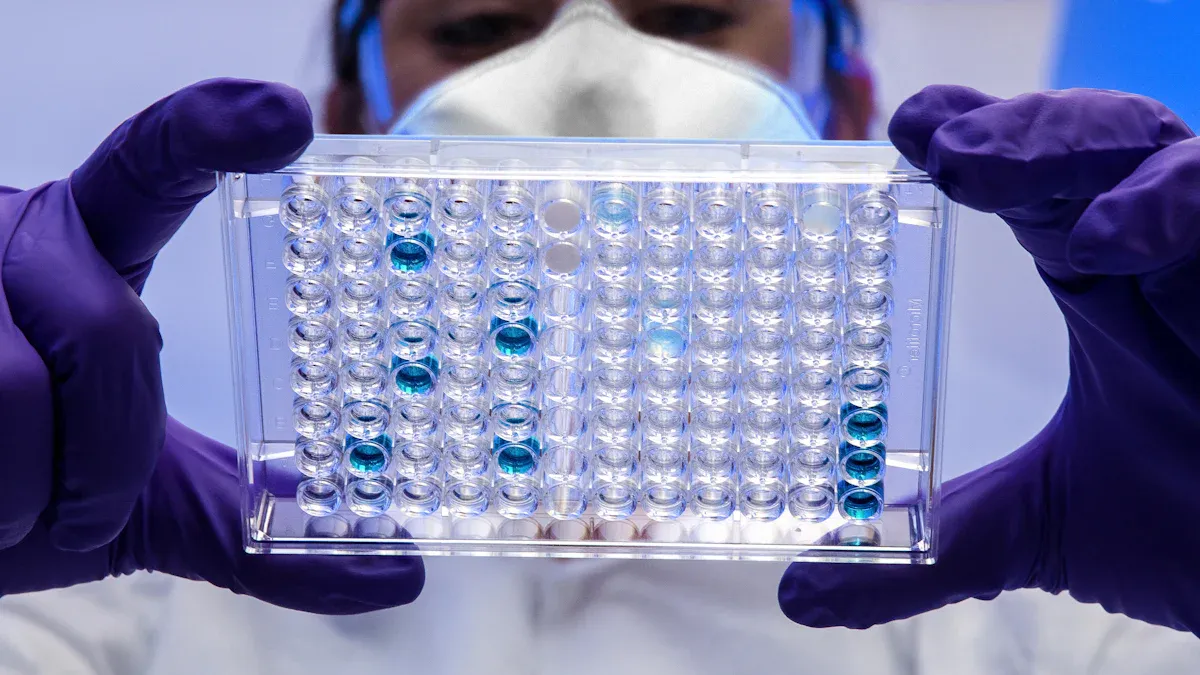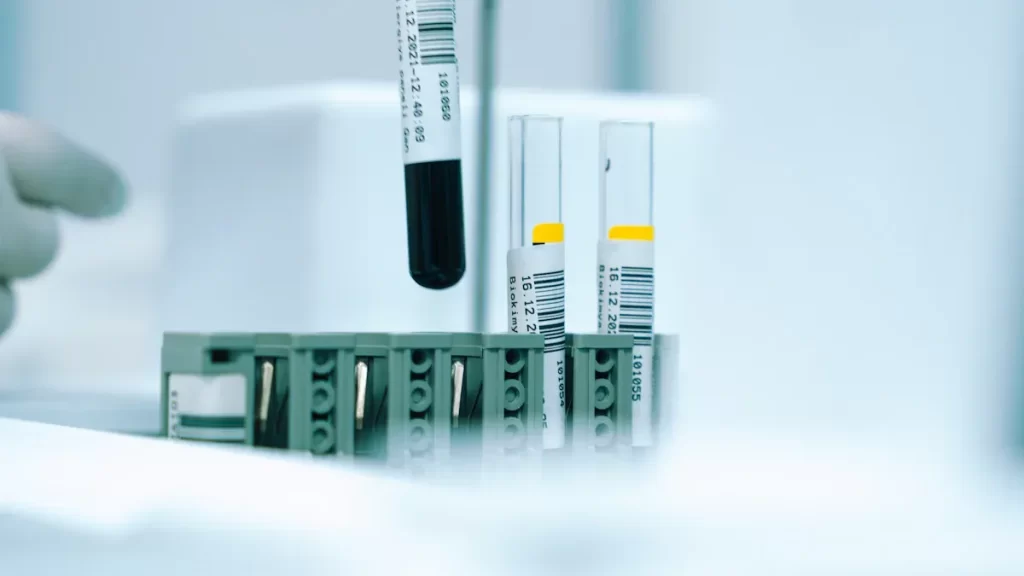News & Events
Understanding the Role of C Antibody IgG in HCV Testing

You might wonder if is c antibody igg is different in hcv diagnosis. Anti-hcv igg detects if your body has made an antibody after infection. Over 58 million people have chronic hcv worldwide, and only about one in five know their status.
- Chronic hepatitis c infection leads to nearly 400,000 deaths each year.
Understanding your test results helps you make informed decisions.
Key Takeaways
- The anti-HCV IgG test detects antibodies your body makes after exposure to HCV. A positive result indicates past exposure but does not confirm an active infection.
- If you receive a reactive anti-HCV IgG result, follow up with an HCV RNA test to determine if the virus is currently active in your body.
- Understanding your test results is crucial. Always consult your healthcare provider for clarification and guidance on the next steps.
Is C Antibody IgG Used in HCV Diagnosis?

What Is C Antibody IgG?
When you hear the term “is c antibody igg,” you might wonder what it means for hcv. C antibody igg refers to a type of antibody your immune system makes after exposure to hcv. This antibody is part of the standard anti-hcv antibody detection process. The test looks for both igm and igg antibodies in your blood. You do not need to take separate tests for each type. The presence of anti-hcv igg shows that your body has responded to the virus at some point.
You may see the term “anti-hcv igg” on your lab report. This means the test checked for igg antibodies against hcv. The test does not only look for igg, but also for igm, which appears earlier after infection. Both types help doctors know if you have ever been exposed to hcv.
The anti-hcv igg test is a key part of hcv serologic testing. It helps screen people who may have hcv, even if they do not have symptoms. The test is widely used because it is simple and can catch most cases of infection.
Note: The anti-hcv igg test cannot tell you when you got infected. It only shows if you have ever had the virus in your body.
How Anti-HCV IgG Works
The anti-hcv igg test works by detecting antibodies your body makes after hcv infection. When hcv enters your body, your immune system starts to fight it. First, it makes igm antibodies, then igg antibodies. The presence of igg means your body has seen the virus before.
You might ask, “Is c antibody igg enough for diagnosis?” The answer is that anti-hcv igg is a useful diagnostic marker, but it cannot tell if you have a current infection or if you had it in the past. The test cannot distinguish between acute and chronic hcv infection. Doctors use it as a first step in hcv serologic testing, but they need more tests to confirm if the virus is still active.
Here is a table comparing the sensitivity and specificity of anti-hcv igg with another hcv diagnostic marker:
| Diagnostic Test | Sensitivity | Specificity |
|---|---|---|
| Anti-HCV IgG | 96.3% | 26.9% |
| HCV Ag | 96.3% | 100% |
You can see that anti-hcv igg has high sensitivity, which means it catches most people with hcv. However, its specificity is lower, so it may give more false-positive hcv ab results compared to hcv antigen tests.
Doctors cannot use anti-hcv igg to tell if you have a recent hcv infection or a chronic hcv infection. No reliable serological or virological assays can make this distinction. The table below explains why:
| Evidence | Description |
|---|---|
| No reliable assays | There are no reliable serological or virological assays that can distinguish between acute and chronic HCV infection. |
| IgM marker | Serum anti-HCV immunoglobulin M (IgM) is not a useful marker for diagnosing acute infection. |
| Seroconversion | The only reliable method to identify incident infections is to demonstrate seroconversion to anti-HCV, which is challenging outside of prospective studies. |
Some researchers use the anti-hcv igg avidity assay to try to spot recent hcv infection. Low igg avidity may suggest a new infection, but this method is not common in clinics. The following table gives more details:
| Evidence Description | Details |
|---|---|
| Definition of Recent Infection | Recent infection is defined as having an AI <40%. |
| Specificity of Approach | The overall false reactivity rate (FRR) was low at 1.5%, indicating high specificity. |
| Study Context | The study utilized samples collected within 2 years following HCV seroconversion to assess the avidity index (AI). |
You should also know that some conditions can affect your anti-hcv igg results. For example, cryoglobulinemia or immunosuppression can cause false negatives. The window period, which is the time right after infection, may also lead to negative results because your body has not made enough antibody yet. Analytical interferences, such as serum paraproteins, can also affect accuracy.
| Cause of Result | Description |
|---|---|
| Cryoglobulinemia | Can lead to false negative results due to interference with viral antibodies. |
| Immunosuppression | May result in negative enzyme immunoassay results, particularly in profoundly immunosuppressed patients. |
| Window Period | A phase where antibodies may not yet be detectable, leading to false negatives. |
| Analytical Interferences | Caused by serum paraproteins, which can affect the accuracy of test results. |
Recent advancements in anti-hcv igg testing have improved accuracy. New methods like the LiCA® anti-hcv test reduce nonspecific binding and lower the chance of false positives. Some tests now use oral samples, making hcv testing easier and more comfortable. These advancements help doctors find hcv in more people and improve public health.
| Feature | Description |
|---|---|
| High Sensitivity and Specificity | The LiCA® method minimizes nonspecific binding, leading to fewer false positives compared to indirect methods. |
| Enhanced Detection | Allows for undiluted specimen testing, improving detection of low antibody levels. |
| Applicability | Validated for detecting various antigens, including those for SARS-CoV-2, indicating versatility in testing capabilities. |
You now know that is c antibody igg is a key part of hcv serologic testing. It helps doctors screen for hcv, but it cannot tell you if your infection is new or old. Doctors use other tests, like hcv rna, to confirm if you have an active infection. Always talk to your healthcare provider if you have questions about your test results.
Interpreting Anti-HCV IgG and HCV RNA Test Results

Reactive vs Non-Reactive Results
When you receive your anti-hcv igg test results, you will see either a reactive (positive) or non-reactive (negative) result. A reactive result means your blood has antibodies against hcv. This shows your immune system has responded to the virus at some point. A non-reactive result means no antibodies were found, so you likely have not been exposed to hcv.
You can see how often each result appears in a screened group:
| Category | Count | Percentage |
|---|---|---|
| Reactive anti-HCV IgG results | 27 | 1.33% |
| Non-reactive anti-HCV IgG results | 2000 | 98.67% |
| Confirmed cases | 22 | 71% |
| False positives | 6 | N/A |
| Indeterminate results | 3 | N/A |
| Active HCV infection prevalence | 16 | 0.79% |
| Proportion of active infection | 16/22 | 72.7% |
A reactive anti-hcv igg result does not always mean you have an active hcv infection. In places where hcv is rare, many people with a reactive result do not have current infection. You need more tests to know for sure. Many people do not return for follow-up, so it is important to understand why the next steps matter.
A non-reactive result usually means you do not have hcv. If you have a weak immune system or think you had a recent hcv infection, you may need more testing. The table below shows what to do next:
| Result Type | Recommended Action |
|---|---|
| Non-reactive | No further action necessary unless recent exposure is suspected. |
| Immunocompromised | Consider HCV RNA testing if recent exposure is suspected. |
Role of HCV RNA Test
The hcv rna test checks for the genetic material of the virus in your blood. This test tells you if the virus is active right now. After a positive anti-hcv igg result, you need an hcv rna test to confirm if you have an ongoing infection.
Tip: A positive antibody test does not confirm active hcv infection. You need hcv rna testing to know if the virus is still in your body.
Here is how the testing process works:
| Step | Test Type | Purpose |
|---|---|---|
| 1 | HCV antibody test | Initial screening for HCV infection |
| 2 | HCV RNA assay | Confirm current (active) HCV infection |
You should know that hcv rna testing is more accurate for finding active infection. The table below compares the sensitivity and specificity of anti-hcv igg and hcv rna tests:
| Test Type | Sensitivity | Specificity | Positive Predictive Value | Negative Predictive Value | Kappa |
|---|---|---|---|---|---|
| Anti-HCV | 70% | 100% | 100% | 76% | 0.69 |
| HCV RNA | 90% | 100% | 100% | 94% | 0.92 |
You can see that hcv rna testing finds more cases of active infection. Doctors use it to confirm if you need treatment for hcv.
If you have a positive or unclear anti-hcv igg result, you should get an hcv rna test. If the hcv rna test is positive, you have an active infection. If it is negative, you do not have active hcv infection. Sometimes, doctors repeat the antibody test with a different method to check for false positives.
Maternal igg can affect test results in infants. Babies can have their mother’s igg in their blood for up to 18-24 months. This can cause a positive anti-hcv igg result even if the baby does not have hcv. Doctors use hcv rna testing to check for real infection in infants.
Next Steps After Testing
After you get your test results, you need to know what to do next. Here are the steps you should follow:
- If your anti-hcv igg test is non-reactive, you do not need more tests unless you had a recent hcv infection or have a weak immune system.
- If your anti-hcv igg test is reactive, you need an hcv rna test to check for active infection.
- If your anti-hcv igg result is unclear, you should get an hcv nucleic acid test. If this test is positive, you have active hcv infection and need more tests to find the type of virus and start treatment. If the nucleic acid test is negative, you do not have active infection. If you want to know if you cleared a past infection or had a false positive, you can repeat the antibody test with a different method.
Note: If you had a possible exposure to hcv in the last 6 months, you may need to repeat the hcv rna test after 6 months. If you have a high risk of recent hcv infection, repeat hcv rna testing is important.
| Situation | Recommended Action |
|---|---|
| Negative HCV-antibody test after exposure within 6 months | HCV-RNA or follow-up HCV-antibody testing 6 months or longer after exposure |
| High suspicion of recent infection or ongoing risk | Repeat HCV-RNA testing |
| Acute or recent HCV infections (<2 months from exposure) | Testing for HCV RNA is recommended due to potential false-negative antibody results |
If you have a positive hcv rna test, you should see a specialist. You may need more tests to find out the type of hcv and start treatment. If you work in healthcare and have a positive hcv rna test, you should follow up with more testing at 3–6 weeks and again at 4–6 months. If you stay negative, you do not need more tests unless you have a weak immune system.
Early detection of hcv using anti-hcv igg helps find infection in high-risk groups. This makes it easier to start treatment early and prevent chronic hcv infection. Screening programs that use both anti-hcv igg and hcv rna tests are cost-effective, even in places where hcv is not common.
Remember: Always talk to your healthcare provider about your test results. They can help you understand what your results mean and what you should do next.
You learned that the antibody test helps screen for HCV, but it cannot confirm if you have an active infection.
- A positive antibody result means you need an HCV RNA test for a clear diagnosis.
- Always ask your healthcare provider to explain your results and next steps.
Support is available if you feel worried or confused about your antibody results.
FAQ
What does a positive anti-HCV IgG test mean?
A positive result shows you have HCV antibodies. You may have had HCV in the past or have it now. You need more tests.
Tip: Always ask your doctor for the next steps.
Can you get a false positive anti-HCV IgG result?
Yes, false positives can happen. Some health conditions or test errors may cause this. You should confirm with an HCV RNA test.
How soon after exposure can you trust the anti-HCV IgG test?
You may need to wait 8–11 weeks after exposure. Your body needs time to make enough antibodies for the test to detect.

